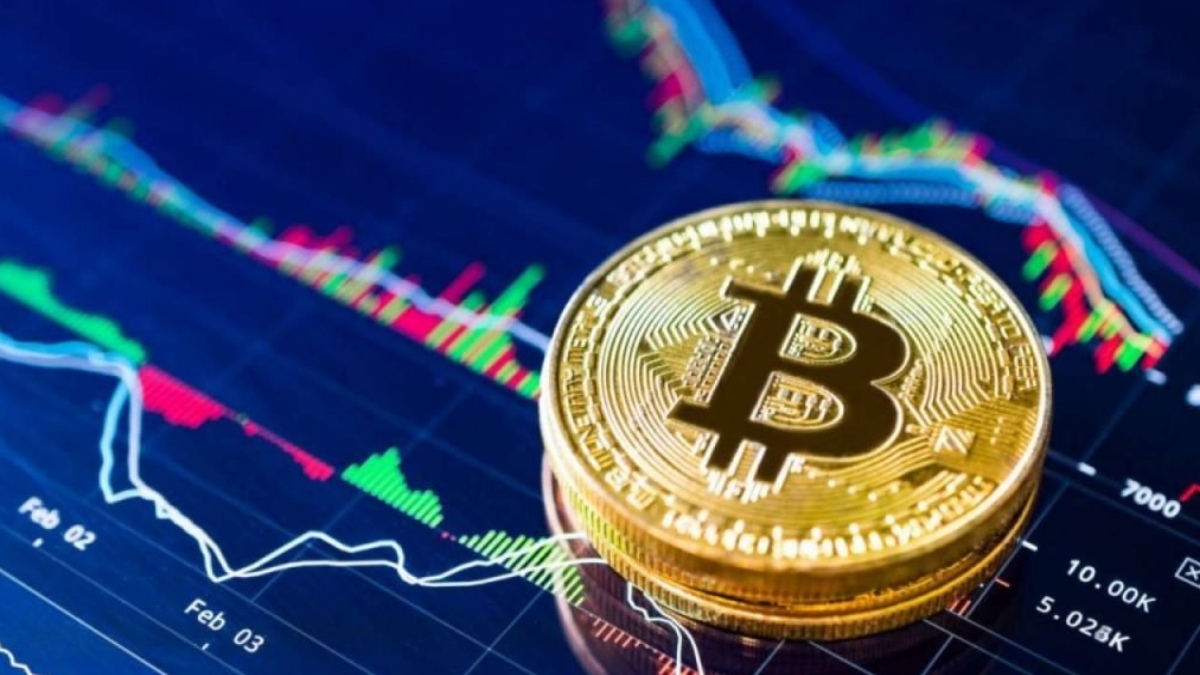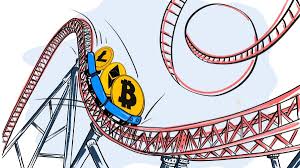Introduction
Decentralized exchanges (DEXs) are peer-to-peer platforms that allow users to trade cryptocurrencies directly with each other, without the need for a centralized intermediary.
DEXs offer several key advantages over traditional centralized exchanges, including increased security, privacy, and control.
Additionally, DEXs play a central role in the emerging decentralized finance (DeFi) ecosystem, which enables users to access a wide range of financial services without relying on traditional financial institutions.
Thank you for visiting Cryptomomen.com
Key Trends Shaping the Future of DeFi

The decentralized finance (DeFi) landscape is rapidly evolving, with new trends emerging that are shaping its future. Key trends include the rise of decentralized exchanges (DEXs), which offer peer-to-peer trading without the need for intermediaries.
DeFi platforms are also gaining traction, providing users with a wide range of financial services such as lending, borrowing, and asset management. These trends are driven by the increasing demand for decentralized and transparent financial solutions.
To understand these trends, here are some frequently asked questions (FAQs) and their answers:
- What are DEXs?
- DEXs are platforms that allow users to trade cryptocurrencies directly with each other without the need for a middleman.
- What are DeFi platforms?
- DeFi platforms offer a range of financial services, such as lending, borrowing, and asset management, on a decentralized basis.
- Why are DEXs and DeFi platforms becoming popular?
- DEXs and DeFi platforms provide users with greater control over their finances, reduce the need for intermediaries, and offer more transparency and security.
Increased Adoption of Decentralized Applications (dApps)
The surge in adoption of decentralized applications (dApps) has significantly transformed the financial landscape. Notably, decentralized exchanges (DEXs) have emerged as formidable alternatives to centralized counterparts, offering users greater autonomy and reduced transaction fees.
DeFi platforms, such as liquidity pools and yield farming services, have also gained traction, enabling individuals to engage in sophisticated financial activities without intermediaries.
The rise of dApps is attributed to their inherent advantages they are trustless, as they operate on distributed ledger technology and smart contracts, eliminating the need for third-party custodians. Additionally, they are transparent, as all transactions are recorded on a public blockchain, ensuring accountability and reducing the risk of fraud.
Finally, dApps promote financial inclusion, empowering individuals to access financial services regardless of their geographical location or financial status.
Rise of DeFi Exchanges

Decentralized finance (DeFi) platforms and exchanges (DEXs) are transforming the financial landscape by eliminating intermediaries and empowering users with direct control over their assets.
Unlike traditional centralized exchanges, DEXs operate on blockchain networks, offering enhanced transparency, security, and accessibility.
Key features include non-custodial trading, automated market making, and the ability to participate in liquidity pools, opening up new opportunities for investors and traders.
As DeFi continues to evolve, DEXs are playing a pivotal role in democratizing finance, bringing financial services to the fingertips of individuals and communities worldwide.
Emergence of Decentralized Autonomous Organizations (DAOs)
The emergence of Decentralized Autonomous Organizations (DAOs) has revolutionized organizational structures and financial transactions.
DAOs are autonomous, self-organizing entities governed by rules enforced through smart contracts on a blockchain.
They eliminate the need for central authorities, enabling transparent and efficient decision-making.
DAOs have found applications in various fields, including decentralized exchanges (DEXs) and decentralized finance (DeFi) platforms.
DEXs facilitate peer-to-peer trading of crypto assets, while DeFi platforms offer financial services such as lending, borrowing, and yield farming.
These platforms leverage the blockchain’s immutability and transparency to enhance security and accountability.
Benefits of Using DeFi Platforms

Decentralized finance (DeFi) platforms offer numerous advantages over traditional financial institutions.
DEXs (decentralized exchanges) eliminate intermediaries and provide peer-to-peer trading, ensuring transparency and reduced fees.
DeFi platforms also enable access to a wider range of financial products and services, empowering users to borrow, lend, earn interest, and trade synthetic assets with ease.
Moreover, the non-custodial nature of many DeFi platforms gives users complete control over their assets, while the open-source nature promotes security and accountability.
As DeFi platforms continue to evolve, they are poised to revolutionize the financial landscape by providing users with greater accessibility, flexibility, and control.
Increased Security

Increased security for Decentralized Exchanges (DEXs) and DeFi platforms is crucial as they gain traction.
DEXs eliminate intermediaries, reducing single-point-of-failure risks.
Smart contract audits ensure code integrity, while bug bounty programs incentivize researchers to identify vulnerabilities.
DeFi platforms implement multi-sig wallets and oracle security to safeguard user assets.
These measures collectively enhance trust and protect the integrity of decentralized financial ecosystems.
Enhanced Transparency
Decentralized exchanges (DEXs) and DeFi platforms have emerged as revolutionary financial innovations, but concerns linger about their transparency and accountability. To address these concerns, regulators are implementing new measures to enhance transparency in the DeFi ecosystem, including:
- Stricter KYC/AML regulations: Verifying user identities and monitoring transactions to combat illicit activities.
- Regular audits: Conducting independent assessments of DEXs and DeFi platforms to ensure compliance and security.
- Publicly accessible transaction data: Providing detailed records of all transactions to foster transparency and deter fraud.
- Collaboration with law enforcement: Working with authorities to investigate and prosecute financial crimes related to DEXs and DeFi platforms.
Lower Transaction Costs

With the advent of decentralized exchanges (DEXs) and DeFi platforms, transaction costs have been significantly reduced, fostering a revolution in the financial industry.
DEXs, unlike centralized exchanges, eliminate intermediaries, allowing users to trade directly with one another, drastically reducing fees.
DeFi platforms, on the other hand, leverage blockchain technology to streamline financial services, eliminating the need for traditional intermediaries and their associated costs.
As a result, users can enjoy significantly lower transaction fees for a wide range of financial operations, including lending, borrowing, and asset swaps.
Top Decentralized Exchanges for Secure Trading
Decentralized Exchanges (DEXs) have emerged as a secure and transparent alternative to traditional centralized exchanges.
Unlike centralized platforms, DEXs operate on blockchain technology, which eliminates the need for intermediaries and provides enhanced security for traders.
By leveraging smart contracts, DEXs enable peer-to-peer transactions, ensuring that users retain control over their assets throughout the trading process.
Popular DEXs include Uniswap, PancakeSwap, and SushiSwap, which offer a wide range of trading pairs and competitive fees.
These platforms have played a significant role in the growth of Decentralized Finance (DeFi), empowering users to lend, borrow, and trade cryptocurrencies in a secure and decentralized manner.
Introduction
Decentralized Exchanges (DEXs) are emerging as formidable players in the decentralized finance (DeFi) landscape.
By leveraging blockchain technology, DEXs eliminate the need for intermediaries, empowering users to trade cryptocurrencies directly with each other, ensuring greater transparency, reduced fees, and enhanced security.
This decentralized approach has fostered a vibrant and rapidly growing ecosystem of DeFi platforms, where users can access a wide range of financial services, including lending, borrowing, and staking, all without the constraints of traditional institutions.
Hope it is useful
As we bid farewell to this captivating exploration of the future of DeFi and decentralized exchanges, we leave you with a profound understanding of the rapidly evolving landscape of digital finance.
Remember, knowledge is power, and by staying abreast of the latest innovations in this dynamic industry, you empower yourself to make informed decisions and unlock the full potential of decentralized trading.
And don’t forget to share this invaluable information with your fellow enthusiasts—together, we can drive the progress of DeFi and shape the future of finance.
Thank you for joining us on this journey, and stay tuned for more insights and thought-provoking discussions in the articles to come.



